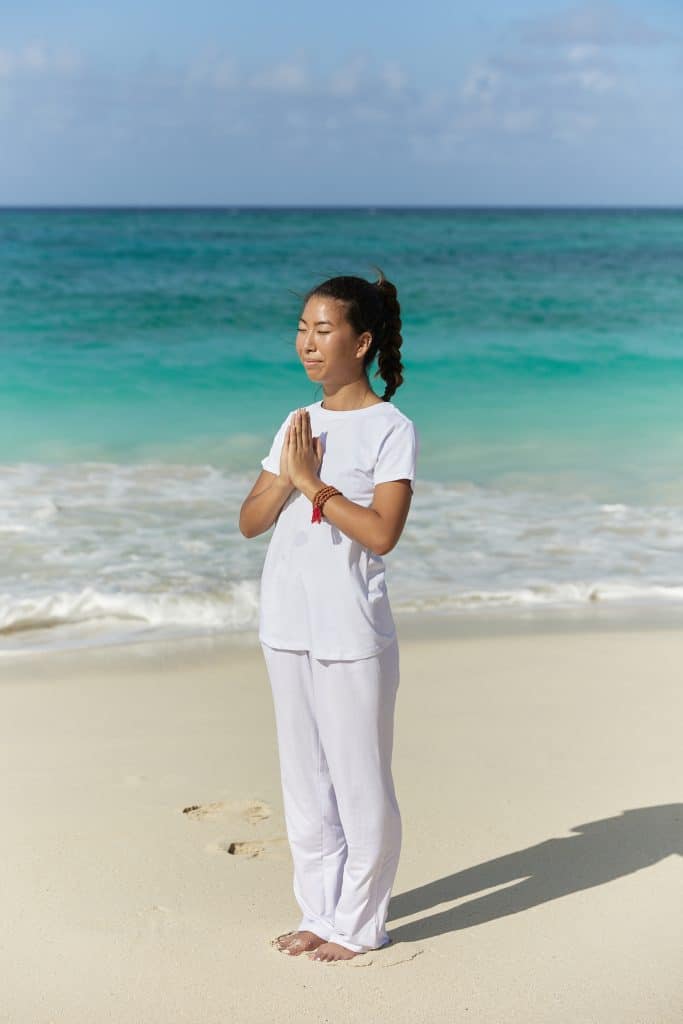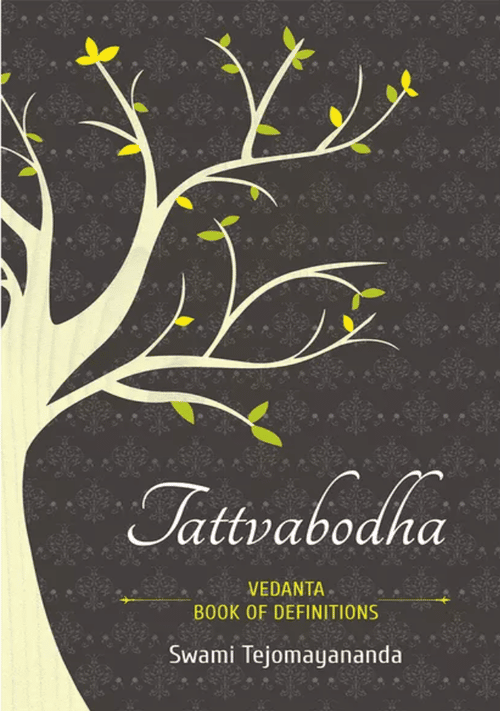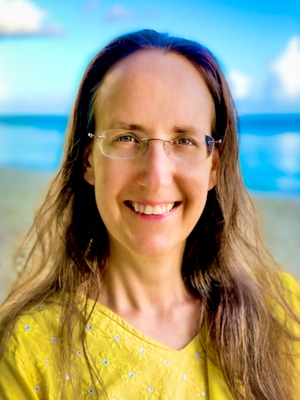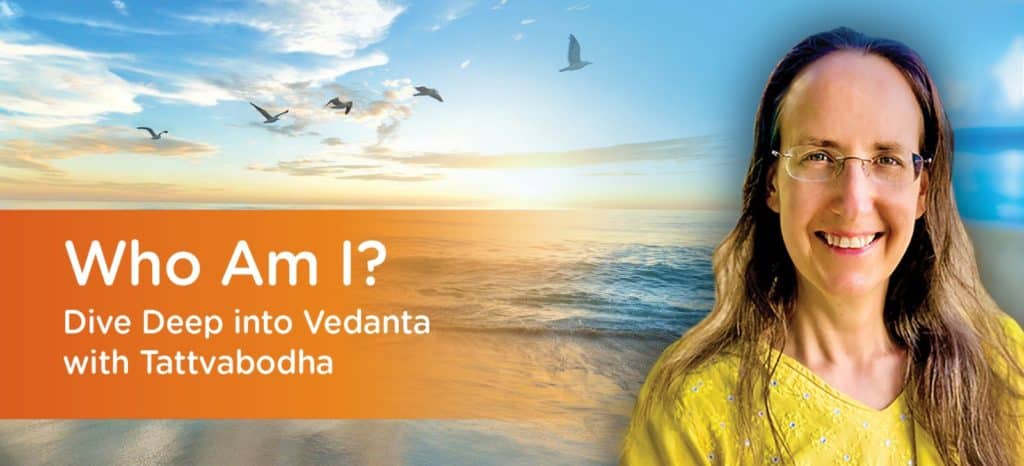- LIVE ONLINE PROGRAM
November 9, 2023 – February 8, 2024
Who Am I?
Dive Deep into Vedanta with Tattvabodha
with Rukmini Chaitanya
Rukmini Chaitanya
12 WEEKLY SESSIONS, Thursdays, 3:00 – 4:30 pm ET
Course Description:
“Brahman is Real. The universe is Unreal (an illusion; an appearance). The individual soul is, in essence, Brahman.”
– Adi Shankaracarya
If you have ever wondered … What is the nature of reality? Who am I? Why am I here? How do I live my best life? … then this course is for you.
Tattvaboddha (“Knowledge of Truth”), written by Adi Shankaracharya, the father of Advaita Vedanta, is a fundamental introductory text in Vedanta, one of the 6 Hindu philosophies. The ancient Vedanta texts explore the nature of reality, the Self (Atman) and ultimate reality or cosmic consciousness (Brahman). Tattvabodha is an essential foundation for you as the student to gain an understanding of the deeper teachings of Vedanta, in particular the idea of non-dualism between the individual soul and ultimate reality. It is an excellent introduction to spiritual seekers and philosophers interested in uncovering the truth about themselves, consciousness, and reality and ultimately achieving liberation.
‘The purpose of Tattvabodha is Liberation.’
More essential facts about Tattvabodha:
- It uses clear language to deal with the complex concepts of the nature of the Self (Atman) and its relationship to the ultimate reality (Brahman).
- It describes the qualifications to be a student of Vedanta, outlining the need-to-know concepts and terminology found in all texts of Vedanta.
- It is composed for the student who is keen to understand or remind themselves of the technical terms before undertaking the study of the Vedas and is delivered in the form of a dialogue between a teacher and student in a succinct Question and Answer format.
- It is a concise text but it contains most, if not all, of the fundamental concepts of Vedanta which makes it extremely rich with information.


The Tattvabodha is an introductory text outlining the fundamentals of Vedanta. It uses simple language to deal with the Knowledge (or Reality), the Individual and the World and the relationship between the 3. It also describes the qualifications of a student of Vedanta, outlining the need-to-know concepts and terminology found in all texts of Vedanta. It is composed for the new student who has to understand the technical terms before undertaking the study of actual textbooks and is delivered in the form of a dialogue between a teacher and student in a brief Question and Answer format.
Given the quality and importance of the text, it is best studied with an experienced teacher who is both learned in the scriptures and their practical life application. Rukmini Chaitanya is one such teacher.
About Rukmini Chaitanya: Rukmini’s dedication to Vedanta is reflected in the decades spent studying with Swami Swaroopananda, the Spiritual Director of the Ashram, and in her many years spent applying Vedanta to her own life through her service at the Ashram and in her own spiritual practic.
Key concepts you will learn during the course programme...
- The 4 qualifications or spiritual practices of the aspirant - Needed in order to be able to engage in right enquiry and be liberated:
- ‘Viveka’: being able to discriminate between the real and the unreal;
- ‘Vairagya’: dispassion towards the fruits of one’s actions;
- Acquiring the 6 noble virtues; and
- A burning desire for liberation.
- Enquiry into the Truth
- An introduction to the technique of Neti Neti, the analytical meditation which helps us understand the true nature of the Self by negating everything that is not the Self.
- What is the Self?
- Description and explanation of everything we are not: the 3 bodies (the physical, astral, and causal bodies) and their various parts, including: the organs of knowledge (the 5 senses), the organs of action (the mouth or the organ of speech, the two hands, the two feet, the organ of excretion and the sense organ of reproduction), the mind, intellect, memory, and ego. Also, discourse on the 5 sheaths including: the food sheath, the vital sheath, the mental sheath, the intellectual sheath, and the blissful sheath. Culminating in a discussion of what the Self is, pure consciousness, Satcitananda (Existence-Knowledge-Bliss Absolute).
- The Nature of the Universe and Maya
- Discussion on the world and its true nature, which is inseparable from a discussion of the nature of the Self. An explanation of the process of creation according to Vedanta which includes discourse on the 5 pure elements, the 3 qualities (gunas) and the 24 elements.
- The Relationship between the Individual and the Whole and an enquiry into it
- We learn the truth behind Adi Shankaracharya’s statement: ‘The individual soul is, in essence, Brahman’ and engage in a meditation on the Mahavakya ‘That Thou Art’.
- A Discourse on the nature of the Jivanmukti and the three types of Karma
- These are included in the text to describe to the student the nature of the realised Soul and the karma of a realised Soul.
What You Will Gain by Joining this Class…
- An expert grounding in the concepts underpinning Vedanta philosophy, paving the way for further in-depth learning including the Yoga Teacher Training Course!
- Time to really delve deep into the fundamental questions such as Who Am I? What is my Purpose in this World? How do I find inner Happiness?
- An opportunity to meet and engage with fellow like-minded students who are drawn as you are to find answers to these questions!
- An understanding of what you need to do to progress on your spiritual path and practical examples of how to put this into practice!
- An opportunity to ask questions and engage in open and informative discussion and debate with your teacher, Rukmini!
Additional Information:
- Offered as 12 weekly sessions on Thursdays from 3:00 to 4:30 pm ET on the following dates: Nov 9, 16, 23, 30; Dec 7, 14, 21, 28; January 4,11, 18, & 25th.
- This program is offered live through Zoom webinar with the availability for students to interact through Q&A with the presenter.
- For enrolled students, a video recording will be available after each class in the event you miss a class or would like to review the content.
- It is possible to register and take the course at any time. You can catch up on any classes you miss with the recordings.
Requirements and Recommendations:
- No experience necessary. This program is open to beginners as well as advanced practitioners.
- Viewing Device: Desktop or laptop computer will provide the best experience, although you can also connect via a tablet or smartphone.
- Internet connection: High-speed broadband wired or wireless is best.
- Video: Download Zoom to your computer, or install the Zoom app to your device. For interactive group sessions, a webcam or integrated camera will allow others to feel more connected with you.
- Audio: Headphone speakers are recommended. If you wish to participate vocally, a headset with a microphone will be ideal.
Course Includes:
- 24 hours of on-demand video.
- 10 live 90 minute sessions.
- Live and recorded guided practices.
- Feedback and personal guidance on student’s home practices.
- Availability to ask questions about the studies and practices between classes.
- Course Manual.




Rukmini Chaitanya
Rukmini Chaitanya is a senior staff member of the Sivananda Ashram Yoga Retreat Bahamas, and the personal assistant to Swami Swaroopananda, the Acharya, or spiritual director of the Ashram. She regularly teaches the Bhagavad Gita during the Sivananda Yoga Teacher training as well as other courses on the Bhagavad Gita, Vedanta, positive thinking, meditation, and yoga philosophy.
Rukmini Chaitanya is known for her enthusiastic and inspiring teaching style as well as for her devotion to the lineage and the scriptures. She is dedicated to each of her students and has an innate desire to share knowledge with them. She brings a great deal of clarity to every topic and is highly appreciated for her capacity to unfold complicated topics and present them in a coherent and pure way.
